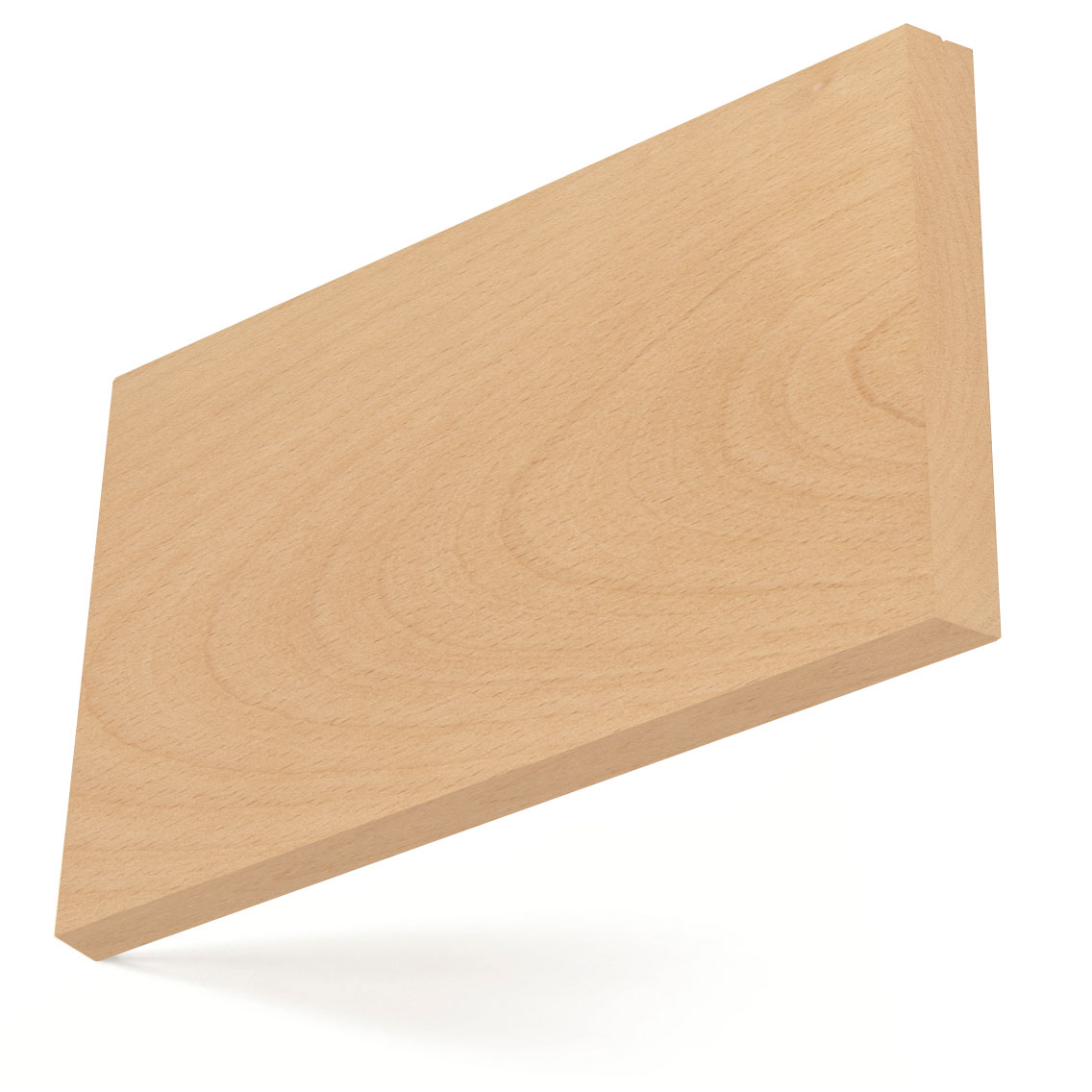American beech
American beech is an important species within the huge family of Fagaceae in the silvicultural composition of the natural hardwood forests of North America which include oaks and chestnut, but beech is not one of the most commercially available.
Latin Name
Fagus grandifolia
Other Common Names
N/A

Forest Distribution
American beech trees grow widely across the eastern USA in mixed hardwood forests, although are concentrated in the central areas of the eastern States. American beech is different to European beech as the trees grow less tall and generally less straight and are frequently multi-stemmed in older stands.
FOREST GROWTH
Forest Inventory Analysis (FIA) data shows U.S. beech growing stock is 348 million m3, 2.6% of total U.S. hardwood growing stock. U.S. beech is growing 4.5 million m3 per year while the harvest is 3.8 million m3 per year. The net volume (after harvest) is increasing 0.7 million m3 each year.
LCA Tool
seconds
Material Availability
Beech from the USA has limited availability as sawn lumber, especially in higher grades and thicker sizes. This is attributed partly to the fact that most parcels of mixed species logs do not contain sufficient beech to produce a full charge for kiln drying. Furthermore beech, which is rather difficult to dry, requires a particular kiln schedule and cannot easily be mixed with other species. For this reason availability is mainly from specialist producers who can also usually supply steamed beech. The lumber is normally sold unselected for colour and mainly in thicker specifications. Beech veneer is rarely available.
Wood Description
American beech tends to be darker in colour and less consistent than European beech. The sapwood is almost white with a red tinge and the heartwood is light to dark reddish brown. The wood of beech is generally straight and close grained with uniform texture. It has medium bending and crushing strength, but is low in stiffness and shock resistance. The wood may exhibit brown mineral streaks in the heartwood which, under NHLA Grading Rules, are not considered a defect.
Mechanical Properties
Beech is heavy, hard and reasonably strong. It has high resistance to shock and is very suitable for steam bending.
-
0.64
Specific Gravity (12% M.C.)
721 kg/m3
Average Weight (12% M.C.)
13.00%
Average Volume Shrinkage (Green to 6% M.C.)
102.736 MPa
Modulus of Rupture
11,859 MPa
Modulus of Elasticity
50.334 MPa
Compressive strength (parallel to grain)
5,782 N
Hardness
Performance
- American beech works well with most hand and machine tools. It has good nailing and gluing properties and can be stained and polished to a good finish. The wood dries fast and tends to warp, split and is subject to surface checks when dry. It is prone to large shrinkage on drying and will move in humid conditions.
- The wood is non-resistant to heartwood decay but is permeable for preservative treatment.
Main Uses
Beech is considered suitable where hardness and hardwearing properties may be essential. It is used in furniture, doors, flooring and panelling. It has specialist applications including tool and brush handles as it is easy to turn. Having no smell or taste, it is suitable for food containers.